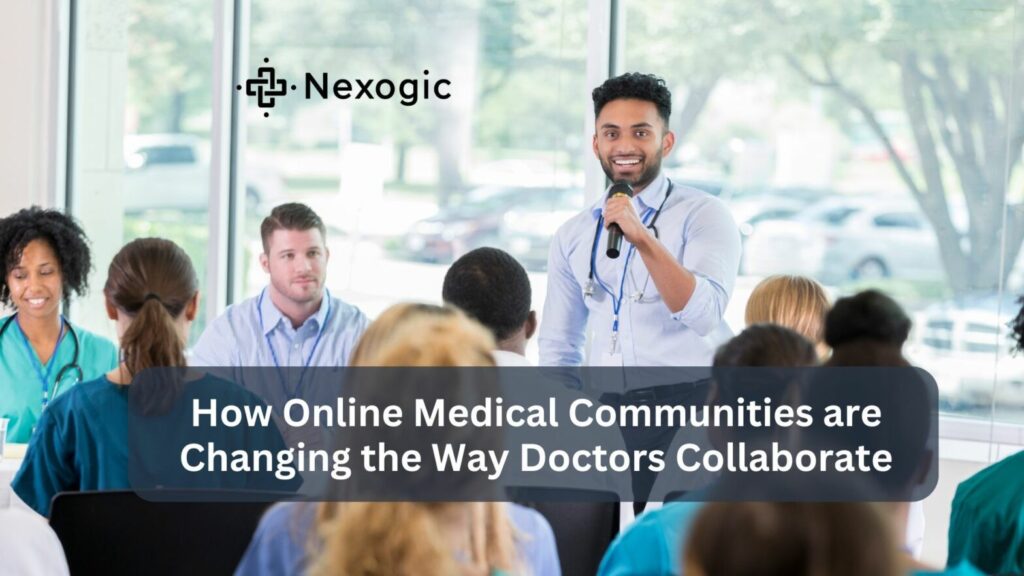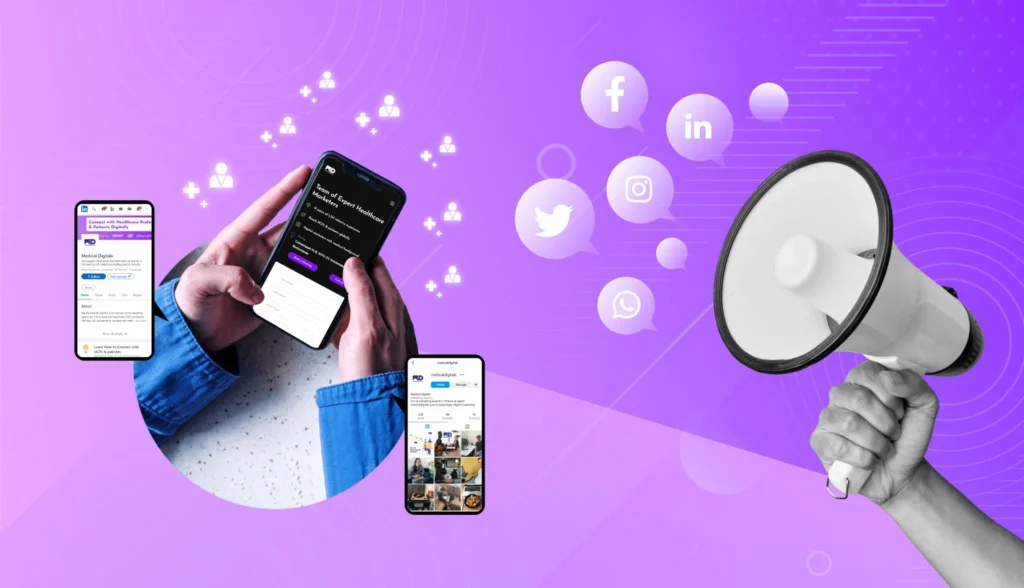As technology continues to transform every aspect of our lives, the healthcare industry is experiencing a quiet yet powerful evolution. At the core of this shift are digital platforms that enable doctors, medical students, and healthcare professionals to connect, collaborate, and share expertise across borders.
Online Medical Communities are playing a pivotal role in this transformation—not just digitizing conversations, but fundamentally changing how doctors work together, exchange insights, and deliver better patient outcomes. The traditional model of isolated practice is being replaced by a more connected, informed, and innovative approach to medicine.
Let’s explore how these communities are reshaping doctor collaboration and why they are becoming essential tools for modern healthcare professionals.
1. Breaking Down Geographical Barriers
Traditionally, doctors relied on annual conferences, local hospital networks, or print journals to stay in touch with peers and medical trends. But that model limited interaction to specific times and places.
Online medical communities remove those barriers. They allow doctors from anywhere in the world to exchange insights in real time. Whether it’s a cardiologist in Germany discussing a rare case with a peer in Brazil or a general practitioner in Kenya learning about updated treatment guidelines from a U.S.-based expert, the ability to collaborate across borders is seamless and immediate.
This global access helps standardize care practices, expose doctors to diverse medical perspectives, and foster an inclusive community of shared learning.
2. Peer-to-Peer Learning and Real-Time Knowledge Sharing
The most significant value these platforms offer is real-time knowledge exchange. Unlike traditional methods that are often delayed or static, online communities enable dynamic learning.
Doctors can participate in:
-
Clinical case discussions
-
Virtual grand rounds
-
Specialty forums
-
Evidence-based Q&A sessions
Imagine a young physician in India getting feedback on a challenging diagnosis from an experienced endocrinologist in the UK—within hours. This peer-to-peer learning not only strengthens individual clinical knowledge but also elevates standards of care globally.
3. Collaborative Research Made Easy
Medical research often demands collaboration across institutions and countries. However, logistical hurdles and lack of access to collaborators have slowed innovation for decades.
Online medical communities simplify this process by connecting like-minded professionals and researchers. Doctors can now:
-
Form research groups
-
Share data securely
-
Recruit participants for clinical trials
-
Co-author scientific papers
This global research network accelerates medical breakthroughs and brings evidence-based practices to the forefront of patient care.
4. Building a Professional Digital Presence
Many modern platforms, including the Nexogic Healthcare Network Platform, offer features beyond discussion forums. Doctors can now:
-
Create digital CVs
-
Highlight their publications and achievements
-
Join topic-based groups
-
Engage with institutions and recruiters
This acts as a professional profile, similar to LinkedIn but tailored for healthcare. It’s particularly beneficial for young doctors looking to build credibility, find mentors, or explore international opportunities.
5. Emotional Support and Mentorship
Medicine, while deeply fulfilling, is also a high-pressure field. Long hours, emotional fatigue, and burnout are common issues among healthcare professionals.
Online medical communities are becoming safe spaces where doctors can:
-
Share personal experiences
-
Seek guidance from mentors
-
Discuss ethical dilemmas
-
Find peer support during difficult times
These interactions help reduce isolation and foster a culture of empathy and mutual respect—key elements in sustaining a healthy medical workforce.
6. Streamlined Career Growth and Job Access
Today, hospitals, clinics, and healthcare startups are turning to online medical communities to connect with qualified candidates. By maintaining an active professional profile, doctors can:
-
Discover job postings tailored to their expertise
-
Apply with a single click using digital CVs
-
Get referrals and recommendations
-
Stay informed about both public and private sector roles
This level of access empowers doctors to take control of their career progression, stay relevant, and explore opportunities they might otherwise miss.
A More Connected, Smarter Healthcare Future
The rise of online medical communities represents more than just a trend—it’s a necessary evolution. These platforms are driving:
-
Faster collaboration among specialists
-
More informed decision-making in patient care
-
Continuous medical education that adapts to the times
-
Global research innovation
-
Supportive professional ecosystems
At Nexogic, we envision a future where no doctor works in isolation. A future where every medical professional—regardless of geography or resources—has access to the tools, people, and knowledge they need to provide exceptional care.
By fostering global medical collaboration, online medical communities are not just changing how doctors connect—they are transforming the future of healthcare.



